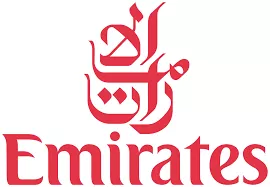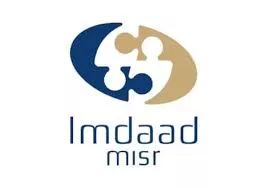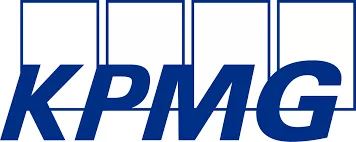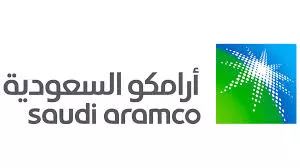For finance professionals in the GCC, deciding between CMA (US) and ACCA certifications is a critical career decision. Both credentials offer distinct advantages for roles such as FP&A analysts, financial controllers, and finance managers aiming for leadership positions. This article unpacks the CMA vs ACCA for finance managers in GCC, comparing eligibility, syllabus, duration, exam structure, and career impact to help you make an informed choice.
Understanding CMA (US) and ACCA Certifications
The Certified Management Accountant (CMA) certification is a globally recognized credential focusing on management accounting, financial analysis, and strategic decision-making. It is ideal for professionals targeting roles in FP&A, controllership, and senior finance leadership.
The Association of Chartered Certified Accountants (ACCA) is a well-established qualification emphasizing accounting, auditing, taxation, and financial management. It offers a comprehensive foundation for various finance careers, including general accounting and audit functions.
Eligibility and Time to Complete
Eligibility criteria and average time to complete vary between CMA and ACCA, influencing the choice for freshers and working professionals in the GCC.
| Criteria | CMA (US) | ACCA |
|---|---|---|
| Entry Requirements | Bachelor’s degree or equivalent; relevant work experience required for certification | No formal degree required; relevant work experience and professional knowledge helpful |
| Time to Complete | Typically 12–18 months, flexible for working professionals | Usually 2–3 years, depending on exemptions and study pace |
| Number of Exam Parts | 2 parts (Part 1: Financial Planning, Performance & Analytics; Part 2: Strategic Financial Management) | 13 exams across knowledge, skills, and professional levels |
| Work Experience | 2 years relevant professional experience required | 3 years relevant practical experience needed to complete qualification |
Still Confused About Eligibility?
Get a Free Profile Assessment from our Senior Counsellor.
Syllabus and Focus Areas: FP&A vs Controllership
The core syllabus content differentiates CMA and ACCA in terms of skill emphasis important for different GCC finance roles.
- CMA: Concentrates on FP&A, budgeting, forecasting, cost management, risk management, and strategic decision making, making it highly suitable for candidates aiming for controllership or senior management roles.
- ACCA: Offers a broader accounting foundation with modules on financial accounting, audit and assurance, taxation, law, and financial management, ideal for those seeking diverse accounting roles or audit careers.
This focus means finance managers looking to specialize in performance analysis and strategic management often lean towards CMA, while those pursuing comprehensive accounting expertise may prefer ACCA.
Financial Investment and Exam Logistics
Certification fees and exam administration impact candidate planning, especially for GCC professionals balancing work and study.
| Aspect | CMA (US) | ACCA |
|---|---|---|
| Registration Fee | Varies; candidates should refer to official CMA [exam page](https://edudelphi.com/ae/cma-course-dubai/) for updates | Varies regionally; flexible options available |
| Exam Fee | Per part fee applies at authorised test centres; check updated fees | Pay-as-you-go system for individual exams |
| Exam Window | Multiple windows annually, flexible to fit professional schedules | Exams conducted multiple times a year, in computer-based format |
Note: For precise CMA training and exam support options in the GCC, consider reviewing CMA training details; CMA with exam support (GCC) provided by expert education providers.
Career Impact and Salary Expectations in GCC
Both CMA and ACCA open doors to lucrative finance careers in the Gulf region. The choice can depend on your career goals:
- CMA holders frequently progress towards FP&A roles, financial controller positions, and strategic finance leadership jobs that require strong analytical and managerial accounting skills.
- ACCA professionals often advance in corporate finance, audit, taxation, and regulatory compliance roles, benefiting from a wider accounting knowledge base.
Salary increments post-certification vary by sector and experience but generally see positive growth. Candidates should consider local market demand and role specialization.
Pro Tips and Pitfalls to Avoid
- If you are a working professional in the GCC aiming for faster completion and career advancement in corporate finance, CMA’s focused two-part exam and flexible windows offer a practical advantage.
- Fresh graduates may find ACCA’s broad syllabus valuable for building foundational knowledge but should be prepared for a longer time commitment.
- Verify eligibility and fees directly from official sources and education providers to avoid surprises. The CMA’s strong alignment with FP&A and strategic management suits finance managers targeting controllership roles.
- Ensure you plan your study and exam registration ahead due to varying exam windows and requirements.
In conclusion, the decision between cma vs acca for finance managers gcc hinges on your career aspirations, time availability, and focus areas. To explore CMA in detail, including training and exam support in the GCC, visit CMA training details; CMA with exam support (GCC).
Talk to Our Counsellor
Get Expert Advice our Counsellor will reach within 24 hour






























